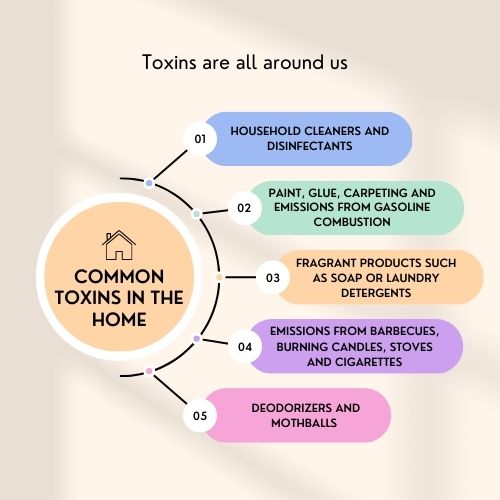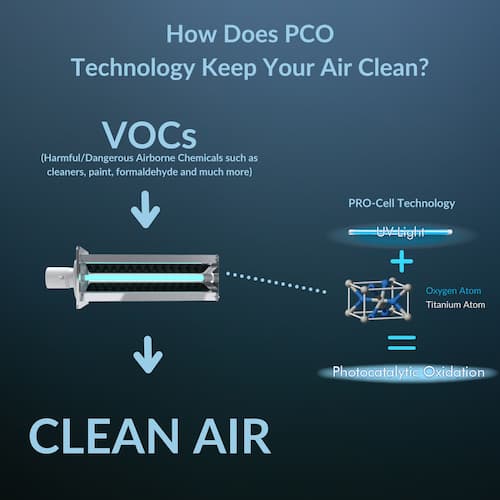Air purifiers have become increasingly popular in recent
years as more people become concerned about the air
 quality in their homes and
offices. There are particular concerns about toxins released into the air from
common chemicals used for cleaning, candles, furniture/carpet off gassing,
environmental accidents, factories, and other industrial sources, as these can
have serious and immediate health consequences. One of the biggest questions
people have when considering an air purifier is whether it can actually remove
toxins from the air. We’ll take a closer look at the science behind air
purifiers and whether they are effective at removing toxins.
quality in their homes and
offices. There are particular concerns about toxins released into the air from
common chemicals used for cleaning, candles, furniture/carpet off gassing,
environmental accidents, factories, and other industrial sources, as these can
have serious and immediate health consequences. One of the biggest questions
people have when considering an air purifier is whether it can actually remove
toxins from the air. We’ll take a closer look at the science behind air
purifiers and whether they are effective at removing toxins.
Let’s start with, what is a toxin? A toxin is any substance that can cause harm or injury to an organism, including humans, when it is ingested, inhaled, or absorbed. This can include a wide range of substances, such as chemicals, pollutants, bacteria, viruses, along with natural compounds. Some of the more common toxins we, as humans, encounter are heavy metals, pesticides, mold spores , carbon monoxide, and volatile organic compounds (VOCs). The specific effects of a toxin on the each of us can depend on the type and amount of exposure, as well as individual factors such as age, health status, and genetics. So, can air purifiers remove these toxins from the air? In short, the answer is yes, air purifiers can be effective at removing toxins, however it depends on the technology of the air purifier and the specific toxins you're concerned about.
First, let's consider the different air cleaning technologies in today’s air purifiers. Below are the different technologies and how each can help with toxins:
- Basic filter or HEPA-like
- HEPA filter
- Activated carbon filter
- Ionizers
- UV-C bulbs
- PCO technology
Do HEPA filters help with toxins?
HEPA filters are designed to capture particles as small as 0.3 microns, which includes many common airborne toxins. However, some companies will market air purifiers with basic or what might be described as HEPA-like filters. These HEPA-like filters do not filter out the smaller toxins in your air. They may capture some dust and pet dander, but if toxins are the concern, make sure you get a True HEPA filter or what might be described as a H-13 HEPA filter.
Does activated carbon help with toxins?
Activated carbon is a highly effective material for removing certain types of toxins from the air. The porous structure of activated carbon allows it to adsorb a wide range of organic compounds, such as volatile organic compounds (VOCs), as well as some inorganic compounds. When air passes over the activated carbon, these toxins become trapped within the pores, effectively removing them from the surrounding environment.
Do ionizers help with airborne toxins?
Ionizers, also known as air ionizers or negative ion generators, are devices that work by emitting negatively charged ions into the air. These ions attach to positively charged particles, such as dust, pollen, and some airborne toxins, causing them to become heavy and fall to the ground. Some studies have found that ionizers can reduce airborne particles, including some toxins, in certain environments, while others have found little to no effect. The bigger concern with ionizers may be that studies have shown that ionizers can produce ozone , which can irritate the lungs and worsen respiratory conditions.
Do UV bulbs help with toxins?
UVC bulbs, also known as ultraviolet-C lamps, emit ultraviolet-C light, which is a powerful disinfectant that can neutralize bacteria, viruses, and other microorganisms. While UVC bulbs have been used for many years to disinfect surfaces and objects in places like hospitals, they are now also being used to disinfect the air and reduce airborne toxins in homes and offices. UVC bulbs can be used in a variety of air purification systems, such as air purifiers and HVAC units. While UVC bulbs can be effective at neutralizing microorganisms, it is important to note that they may not be effective at removing all types of airborne toxins. For example, UVC light is not effective at removing particulate matter, such as dust, pollen, and other airborne particles.
What is PCO technology, and will it remove toxins?
PCO stands for photocatalytic oxidation, which is a type of
air purification technology that uses UV light to activate a
 catalyst and
produce highly reactive oxidizing agents, can oxidize and break down airborne
pollutants, including some toxins. This technology functions similar to how a
catalytic converter works in a car to remove toxins from exhaust. Specifically,
PCO technology works by converting the air pollutants into harmless compounds,
such as carbon dioxide and water vapor. The technology can be used to remove a
wide range of airborne pollutants, including
volatile
organic compounds
(VOCs), bacteria, viruses, and other microorganisms.
catalyst and
produce highly reactive oxidizing agents, can oxidize and break down airborne
pollutants, including some toxins. This technology functions similar to how a
catalytic converter works in a car to remove toxins from exhaust. Specifically,
PCO technology works by converting the air pollutants into harmless compounds,
such as carbon dioxide and water vapor. The technology can be used to remove a
wide range of airborne pollutants, including
volatile
organic compounds
(VOCs), bacteria, viruses, and other microorganisms.
What is the best air purifier for toxins?
When it comes to removing toxins, a layered approach would produce the most beneficial results. Toxins come in many forms and although a HEPA filter and carbon filter may capture the toxin, it does not neutralize or break down the toxin. Getting an air purifier that also includes a high powered UVC bulb along with PCO technology can take the captured toxins and break them down or neutralize them so you and your family can feel confident in the air you are breathing. In addition, it's important to choose the right size air purifier for the room you're using it in. If the purifier is too small for the room, it may not be effective at removing toxins.
In conclusion, air purifiers can be effective at removing toxins from the air, but it depends on the specific type of purifier and the toxins you're concerned about. Air purifiers with a true HEPA filter (H-13) and activated carbon filter are likely to be the most effective, but it's important to use them in conjunction with other strategies such as UVC and PCO technology to improve air quality. Although HEPA and carbon filters can be effective at capturing toxins, they do not actually neutralize or break down the toxin. UVC and PCO will help ensure toxins captured by the filters are broken down and/or neutralized, leaving your home healthier. Finally, make sure to consider the size of the room to ensure that you get an air purifier that is powerful enough to remove the toxins quickly. By taking these factors into account, you can choose an air purifier that will help to improve the air quality in your home or office.
 US Dollars
US Dollars
